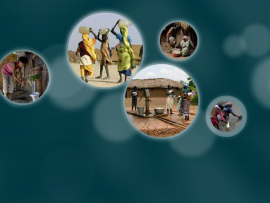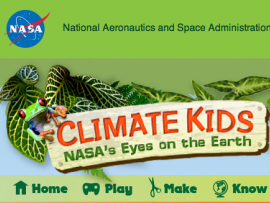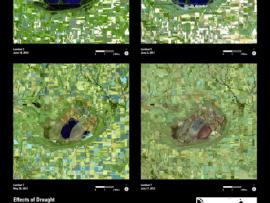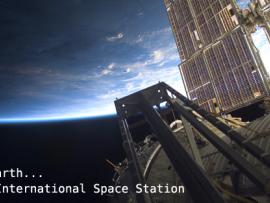Browse Website Resources
Browse Website Resources
Primary Topic:
Subtopics:
Type:
Keywords:
Standards:
Summary:
Over one billion people lack access to safe drinking water worldwide. What can be done? Learn more about this problem and explore possible solutions.
Primary Topic:
Subtopics:
Type:
Keywords:
Standards:
Summary:
An educational website with activities, resources, and games to teach kids of all ages about Earth's systems, water cycle, weather and climate.
Primary Topic:
Subtopics:
Type:
Keywords:
Summary:
The Climate Change and Human Health project is designed to provide educators with the resources to engage high school students in critical thinking about climate change and the potential impact on human health across the planet.
Primary Topic:
Subtopics:
Type:
Keywords:
Summary:
This website describes a study that is being conducted to understand the complexities of rainfall patterns and their effects on food security and human mobility.
Primary Topic:
Subtopics:
Type:
Keywords:
Summary:
View before and after images of natural disasters and human impact in various locations around the world.
Primary Topic:
Subtopics:
Type:
Keywords:
Standards:
Summary:
This website explores the technologies used to study and understand tropical cyclones.
Primary Topic:
Subtopics:
Type:
Keywords:
Summary:
View the latest data on the vital signs of the planet, including arctic sea ice levels, carbon dioxide, sea levels, global temperature and land ice.
Primary Topic:
Subtopics:
Type:
Keywords:
Summary:
Find out how scientists use the distinct sounds made underwater by different size raindrops to measure rainfall.
Primary Topic:
Subtopics:
Type:
Keywords:
Summary:
The S'COOL Project involves students (ages 5 - 20+) in real science, making and reporting ground truth observations of clouds to assist in the validation of NASA's CERES satellite instruments. Includes lesson plans and other related materials.
Primary Topic:
Subtopics:
Type:
Keywords:
Standards:
Summary:
An educational outreach program allowing middle school students to take pictures of our Earth from a digital camera on board the International Space Station. Educators must register in order to participate in EarthKAM missions and request photos of Earth.










